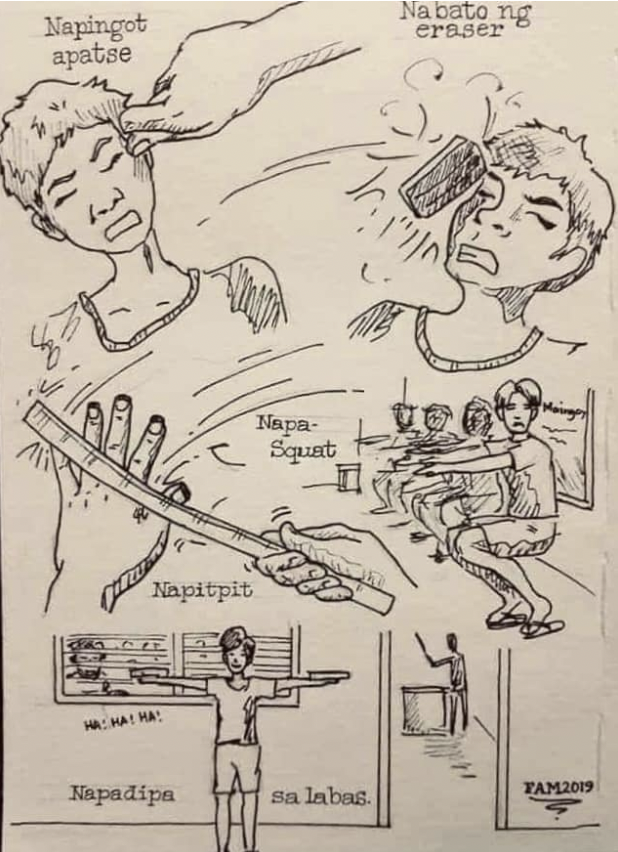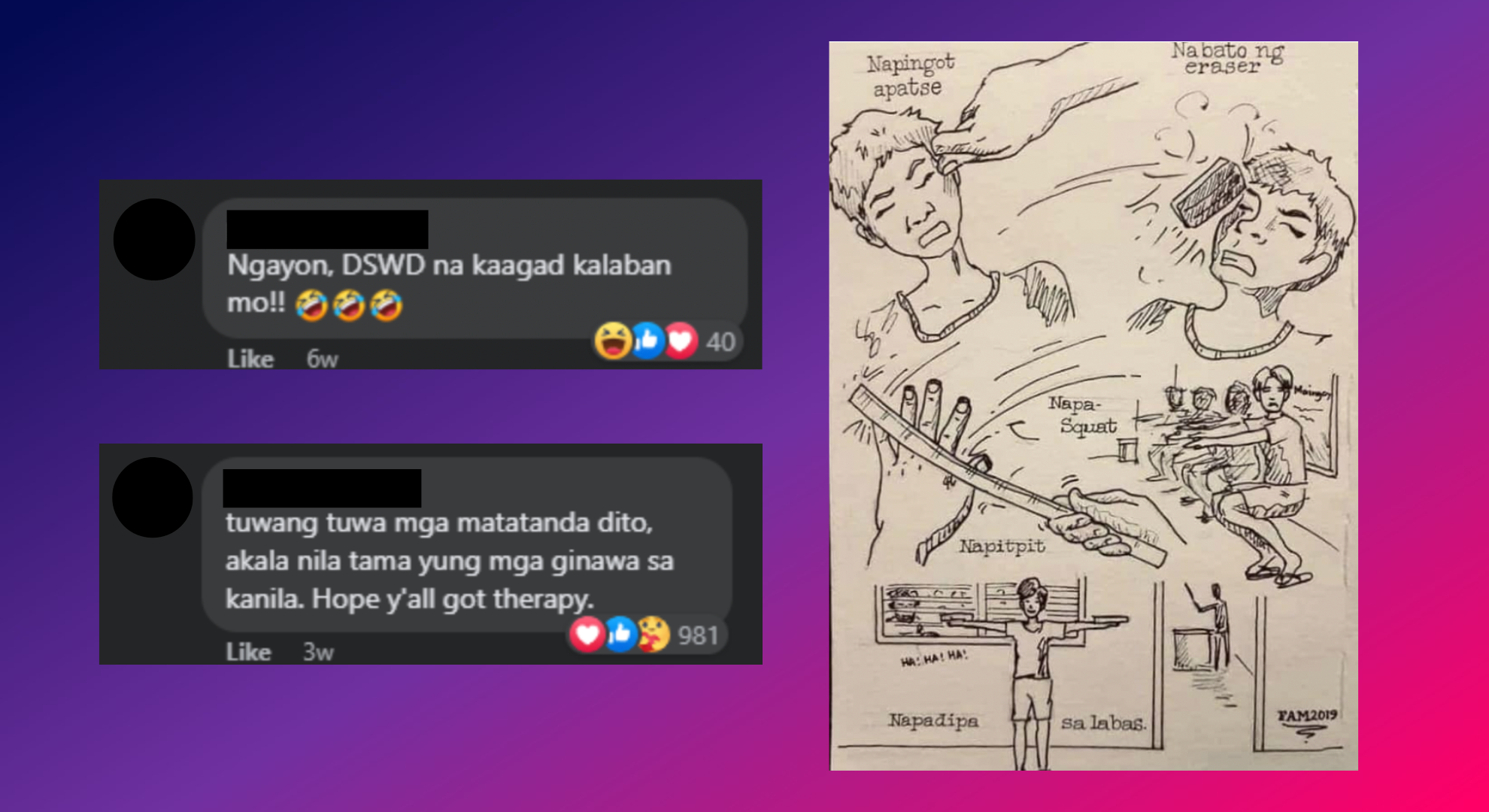[Trigger Warning: Mentions of physical abuse]
Discipline should never require physical abuse.
A public school teacher was caught on cam slapping students on the back because apparently, the students couldn’t answer the teacher’s question in front of the class. The video, while shaky, can still audibly show how unnecessarily angry the teacher was at the students.
Tama ba na saktan mo ang estudyante kapag di makasunod sa KLASE?🤨🤨🤨 pic.twitter.com/axFh1LkET8
— Araial Ilustre (@matabangpogi4vr) September 5, 2022
Recently, the Department of Education (DepEd) said that corporal punishment is the most common complaint their office has received since the opening of face-to-face classes.
However, despite the obvious physical and emotional trauma these punishments will inflict on students, some people still voice out their support for this kind of hard discipline, going as far as justifying that it is a form of “tough love” and is good at preventing students from going “soft,” whatever that means.
‘Old habits die hard’
Usually, this kind of sentiment can be seen voiced out on social media by older generations–those born in the 70s, 80’s and 90’s. They see corporal punishment as a good form of discipline, and that this has turned them into “better adults.”

“Lahat yan nasubukan ko!!” A Facebook user commented on a post regarding corporal punishment. (I’ve tried everything on that list!)
Another commenter said “Totoo mga ito..but never na mag revenge mga parents o students, kc para din sa kabutihan…but at present generation well,mag retaliate/revenge sila.kaya marami ngayon kulang ng respeto.” [SIC]
(All of these were true, but students and parents never sought revenge because this was for their own good. With today’s generation, well, they will retaliate that’s why most of them now lack respect)
There is a disconcerting feeling that there are many people who glaze nostalgia on the topic of corporal punishment, that it was for the better, that it made kids who went through it “tougher” and “ready for the world.”
But no, that’s not true.
It only makes them worse
“Corporal punishment triggers harmful psychological and physiological responses,” the World Health Organization states this with regards to the health impact of slapping or hitting people as punishment.
It’s good to see that there are a growing number of citizens who are vocally opposed to the idea and who see corporal punishment as an old, abusive and lazy way to discipline children.

(The oldies here are overjoyed, they think what happened to them was for the better. Hope y’all got therapy)

(Comment translation: Wow, that’s why a lot of people from that generation have faulty values because they romanticize abuse. I grew up in an environment that does not support this way of discipline and yet I still do good in acads and still striving to be good until today. This is disgusting.)
Some also argue that this causes some repressed anger that, in turn, causes people to have anger management issues and other psychological problems later on in their lives.
“Children not only experience pain, sadness, fear, anger, shame and guilt, but feeling threatened also leads to physiological stress and the activation of neural pathways that support dealing with danger,” WHO explained further.
Good thing that there are Philippine laws already in place that aim to stop these kind of veiled abuses, such as the Republic Act No. 7610 or the Special Protection of Children against abuse, Exploitation and Discrimination act, and the Senate Bill 227 or the Anti-Corporal Punishment Act of 2013. Both laws aim to protect children from any forms of abuse.
Unfortunately, while we have laws in place, we will still continue to see and hear reports of children experiencing physical abuse as long as we have people that think corporal punishment is a normal phase that children just need to go through.

(Comment translation: Now, you have to face DSWD!)

However, they apparently forgot that their generation are the ones who literally brought to life these children they call ‘weak’ and ‘snowflakes’. Grit and tenacity can be learned in different ways. Discipline does not have to come with bruising and pain.
In one of his podcast episodes, Eldibert Estanislao, also known as Typical Pinoy Crap on Facebook, talked about about the generational divide about corporal punishment, with the older generation calling the younger generation as too sensitive. But perhaps, today’s generation has seen the mistakes of the previous generation, and are bent on changing customs and traditions, for the better.
Other POP! stories you might like:
Commentary: Stop scaring people that being ‘non-Christian’ will send them to hell
An open letter to SEVENTEEN’s Joshua Hong
K-Drama recommendations to help change Sen. Estrada’s mind in ‘banning’ Korean dramas in the country
Romanticizing poverty is a really bad coping mechanism



